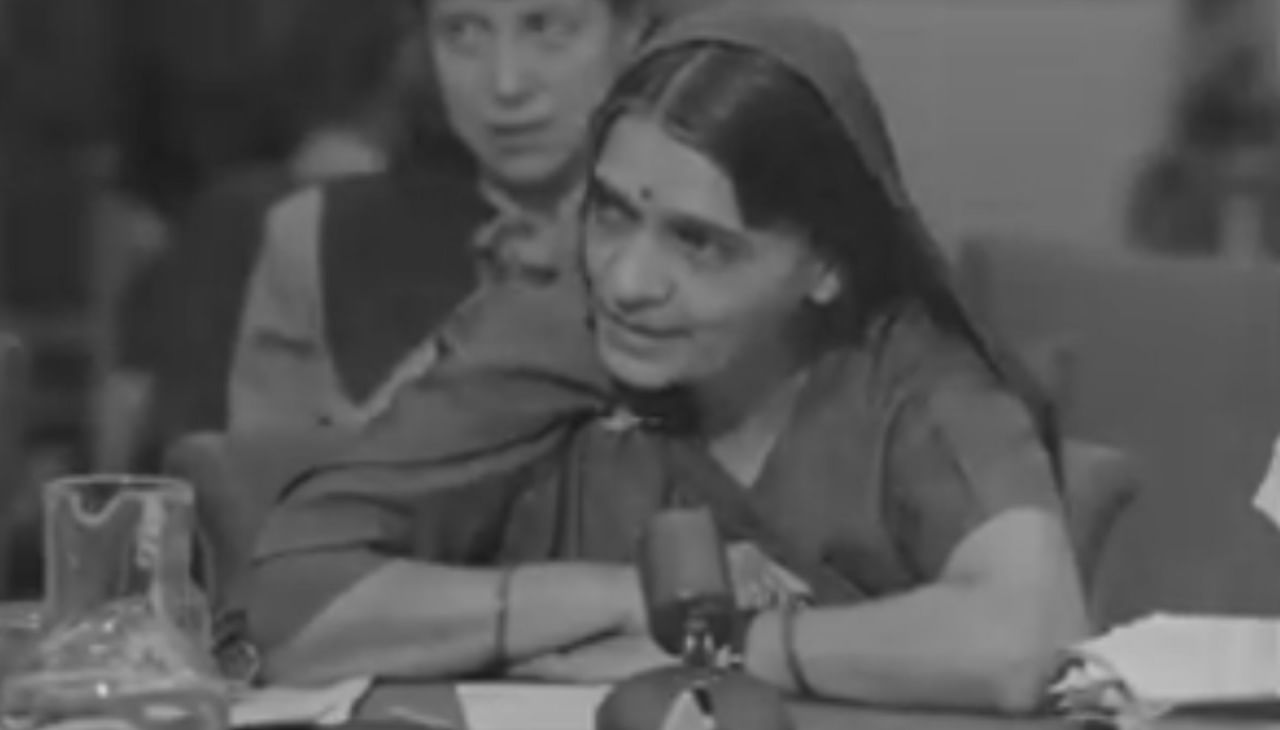
On the historic day of December 10, 1948, the world looked up to an exemplary Indian woman, who as the Indian delegate to the UN Commission on Human Rights rephrased the language of Article 1 of the Universal Declaration of Human Rights from "all men are born free and equal" to “all human beings are born free and equal”, highlighting the need for gender equality. Hoping to see the change by this declaration, she opined, “to create a new world, it is necessary to create a new way of thinking.” The declaration is also termed as the Magna Carta of the common man. Hansa championed the cause of equality and justice in her own country as well and as one of the eminent members of the Indian Constituent Assembly, she ensured an apt representation of these issues with same élan and vigour.
Born in Baroda (now Vadodara), Gujarat, Hansa served the country in various capacities--as a freedom fighter, women rights activist, social activist, legislator, educationist and a writer.
When the Indian Constituent Assembly was formed to frame the future of the country in December 1946, Hansa Mehta was elected to it from the Bombay Provincial Assembly. She was also a member of the Advisory Committee, Sub-Committee on Fundamental Rights and Provincial Constitution Committee of the Assembly. Hansa’s extensive work and experience in the public field helped her voice her views and opinions strongly during the Constituent Assembly debates. Her lively and progressive views which she presented in the Assembly left a strong impact.
Though the average woman in the country had suffered for centuries from inequalities, speaking in the Assembly with the greatest pride, Hansa was against asking for privileges for women like reserved seats, or for separate electorates. She asked for social, economic, political justice and equality, without which real co-operation was not possible between men and women.
She opined, “Women form one half of the population of this country and this ancient land cannot attain its rightful and honoured place in this world without the co-operation of women.”
Hansa wanted women to first think of themselves as citizens of India and to come forward and participate in the nation-building by fulfilling all the duties and responsibilities. She reasoned, “If a woman is going to have the same position, status and rights as man, then the part and role she will have to play will not be very different from that which man will have to play in the New India.”
Hansa considered Purdah as a great obstacle in the way of the progress of women, society and eventually the nation, as women had important roles to play and should not be kept confined within the four walls of her home. She spoke out in the Assembly, “Any evil practised in the name of religion cannot be guaranteed by the Constitution.” Being against all kinds of inequalities, Hansa also spoke for the abolition of untouchability, “There cannot be any distinction between man and man on grounds of caste and we cannot look down upon any man because of his caste.”
Hansa Mehta also advocated the Common Civil Code and drew the attention of the Assembly towards it as too many personal laws in the country were dividing the nation. She opined that the Indian women should have the same civil status irrespective of the community to which she belonged.
In the Constituent Assembly on 14 August, 1947, after Nehru’s historic ‘tryst with destiny’ speech at the stroke of midnight, it was Hansa, who presented the National Flag on behalf of the women of India, she spoke, “it is in the fitness of things that this first flag that will fly over this august House should be a gift from the women of India.”
Her efforts were not confined to Constituent Assembly only, Hansa became the President of All India Women’s Conference (AIWC) from 1946-47 and proposed a Charter of Women’s Rights and responsibilities as a citizen in the various spheres of life. Hansa Mehta was a staunch advocate of educating everyone, and women, in particular. She also held various prestigious appointments in the education field.
Hansa Mehta remained active throughout her life and for her meritorious service towards the nation and towards the evolution of a progressive Indian society, she was awarded Padma Bhushan in 1959.
Today, we can witness women excelling in every field, achieving and creating milestones, enjoying equal rights and performing equal responsibilities efficiently. However, this became possible due to the vision, foresight and persistent efforts by people like Hansa Mehta, who raised gender-related issues in the Constituent Assembly and other platforms to ensure inclusion of provisions related to equality in the Constitution, so that women in future would not need to strive hard for their rights.
(The writer is a post-doctoral research fellow)